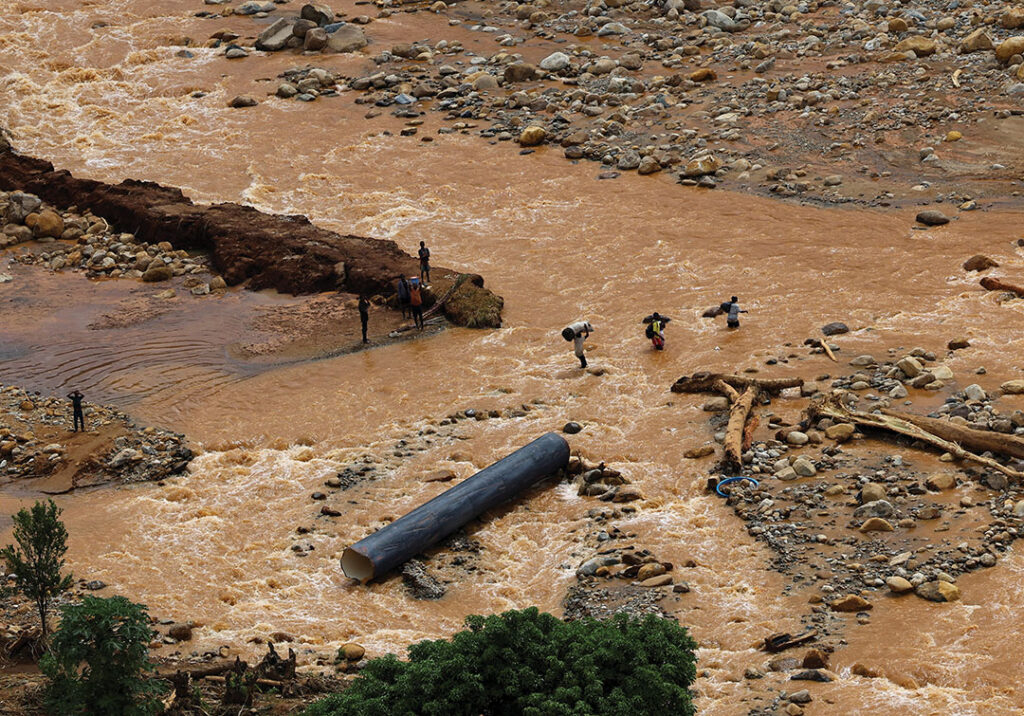As Malawi was confronting what would end up being the deadliest cholera outbreak in its history, another menace waited offshore: Cyclone Freddy.
The storm came aground in Madagascar and Mozambique in late February 2023. After gaining strength over the Mozambique Channel, it hit land again, affecting Malawi in March. Its rising waters and high winds made it one of the deadliest storms to ravage the country in the past two decades, Reuters reported.
By mid-April, more than 1,000 had died because of the storm, according to President Lazarus Chakwera. It affected more than 2 million people and displaced more than 500,000, Reuters reported.
It also exacerbated the protracted response to the cholera outbreak, which began in March 2022. Gavi, the Vaccine Alliance reported on April 26, 2023, that Malawi had logged 58,063 cases and 1,741 deaths.
In response, the United States Agency for International Development has provided $2.5 million to UNICEF to bolster the cholera fight in Malawi. UNICEF will work with Malawi’s ministries of Health, and Water and Sanitation to provide hygiene services in schools and surrounding communities. The effort is expected to help at least 300,000 people, more than 120,000 of whom are children, UNICEF said.
Work will include upgrading water and sanitation facilities in health centers and schools. It also will fund cholera-prevention materials and messaging. The effort is expected to help students return to school in Blantyre by providing cleaning supplies, promoting hygiene, and monitoring and treating water.
Cholera is an acute diarrheal infection caused by contaminated food or water. It can kill through dehydration if left untreated. Flooding such as that from Cyclone Freddy can spread waterborne diseases.
UNICEF’s Malawi representative, Dr. Gianfranco Rotigliano, said the country must be prepared for future outbreaks. “With over 14,000 children affected and 230 young lives lost, the outbreak presents a significant threat to the health and survival of children across Malawi,” he said. “While we work with our partners to address their immediate needs, we must prioritize investing in and strengthening access to quality health care and clean water and sanitation facilities in vulnerable communities.”

